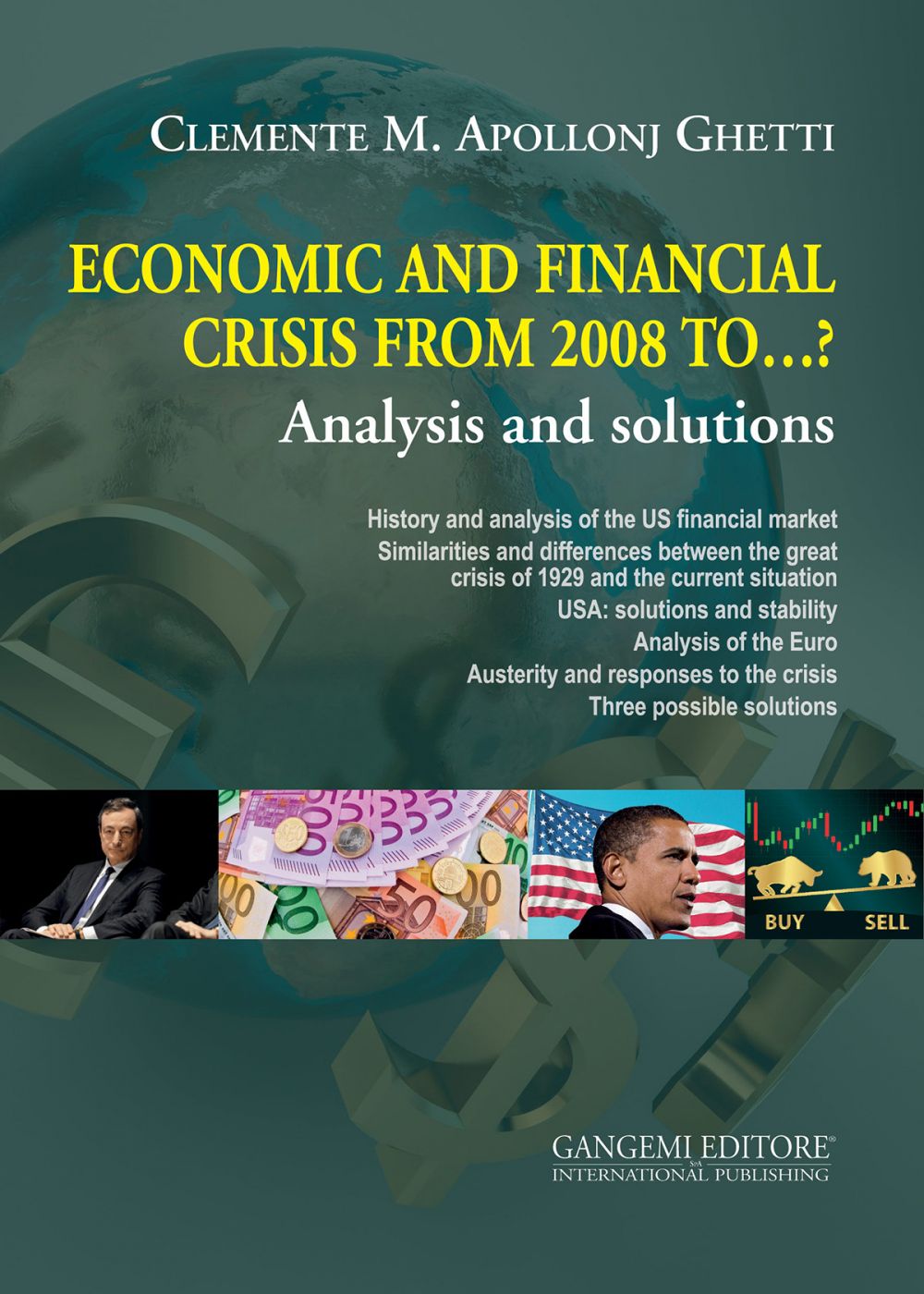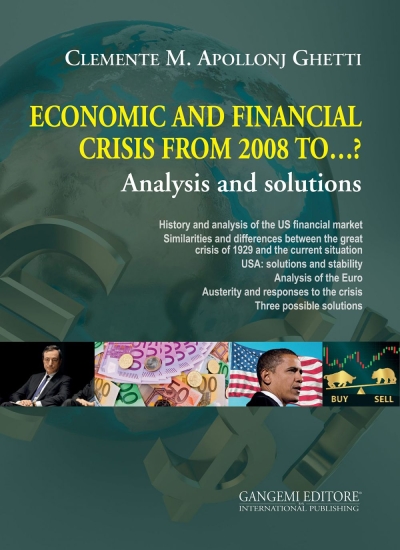Description
The first part of the study is dedicated to the US economy from the end of the Second World War to the present time; similarities and differences between the crisis of 1929 and the current one are examined. The second part is dedicated to Italy and Europe and, first of all, to the Euro. Advantages and disadvantages of the new currency are debated. As far as Italy is concerned, since the advent of the Euro, it has experienced a long period of stagnation. The new currency is for sure at least part of the problem. At the end of the study, three possible solutions to the crisis situation are examined in decreasing order of preference. The first is the reform of the Euro and of the European Central Bank which should have the same powers as every other central bank. The second would see Italy and, perhaps, other countries, leave the Euro. The last and the most disadvantageous would be to play along with Germany and adopt drastic economic measures to create trade surpluses at the expense of some countries.
Clemente M. Apollonj Ghetti was born in Rome on the 27th June 1998. He attended Italian primary schools in Rome, from 2004 till 2013, while he became self-taught in economics. When he was just 15 years old, he wrote this book during the summer. In November 2013 he presented applications and was admitted to Downside School, one of England’s oldest and most distinguished schools. He started attending in the present academic year 2014-2015 the lower sixth form. At the Prize Day of May 2015, at the end of the school year, he has won the prize for Economics.



